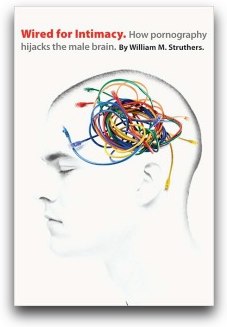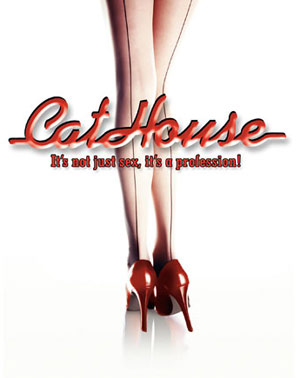The Internet is for Porn.
April 14, 2010 • By K. Swann
 Avenue Q. Most New York residents have heard of and even seen this tongue-in-cheek Broadway play.
Avenue Q. Most New York residents have heard of and even seen this tongue-in-cheek Broadway play. The humorous Sesame Street parody that came barreling onto Broadway in 2003 uses big laughs and little puppets to offer up sharp commentary on sex, racism and growing up.
Each song uses carefully crafted wit and melody to show how aspects of people's private lives pervade the public sphere. At one point in the show, one of the main characters, Kate, who is a schoolteacher, decides to teach her class how to use the internet. In the opening lines of her lesson, Trekkie Monster (a parody of Cookie Monster) chimes in with his own thoughts and proclaims triumphantly: "the internet is for porn."
A song about this 'self-evident' truth erupts as the crowd laughs in gleeful agreement. This Broadway show's efforts to satirically comment on the realities dominating the private and public lives of Americans would have been lacking without any mention of internet pornography. It seems no matter how privatized pornography use is it just doesn't stay in people's homes and out of our culture. While it may make for a funny song, I'm not sure that all of us should be laughing.
Pornography is certainly not a new phenomenon. There are plenty of arguments coming forth from evolutionary biologists and anthropologists suggesting that it has always been with humans in one form or another. But if it can be argued that humans have always been preoccupied with sex to the point of turning it into a spectacle or an exhibition, it certainly can't be denied that the
 internet has changed the dynamics of the human experience. We have e-businesses, e-colleges, e-dating and, now sadly, e-sex.
internet has changed the dynamics of the human experience. We have e-businesses, e-colleges, e-dating and, now sadly, e-sex. This new medium has made it possible for consumers to bypass the seedy late night porn store and stream the stuff directly into their homes.
Biopsychologist William Struthers, professor at Wheaton College and author of Wired for Intimacy: How Pornography Hi-jacks the Male Brain, believes that the "proliferated use" that has resulted from this heightened level of privacy has "removed some of the social taboos" that used to surround pornography.* Because it is becoming more common, society is beginning to embrace it and even normalize it.
If it's not on the Broadway stage, it's on television or on newsstands. Porn is everywhere. Bookstore shelves continue to feature porn star memoirs. Romantic comedies like The Girl Next Door make pornography out to be the innocent wild side that every man desires in a woman. The film, American Pie, gives us a glimpse of a father who uses pornography as an aid in teaching his son about sex. One of the dangers here is that these mainstream movies, despite their R rating, give us the impression that pornography is a normal, humorous and even healthy part of growing up in America.
Swimsuit calendars aren't good enough anymore. We need Maxim Magazine with its hypersexual, nearly nude cover photos to stimulate us. Rappers like Ice-T, Snoop Dogg, and Lil John and the Eastside Boyz, have all made pornographic videos and are all the more popular for it.
 Reality shows like Cathouse and The Girls Next Door take American families into the lives of call girls, strippers and Playboy models. Cathouse portrays actual transactions between prostitutes and male clients at a legalized brothel in Nevada as well as their before and after conversations in the very room in which the sex takes place. America is overexposed and preoccupied with sex.
Reality shows like Cathouse and The Girls Next Door take American families into the lives of call girls, strippers and Playboy models. Cathouse portrays actual transactions between prostitutes and male clients at a legalized brothel in Nevada as well as their before and after conversations in the very room in which the sex takes place. America is overexposed and preoccupied with sex. Still, common does not necessarily mean healthy. Pornography comes from the Greek words porne, meaning sexual immorality (some say it can mean prostitute) and graphein, meaning to write. It is literally the writing about sexual immorality. This "writing-about-sexual immorality" industry is worth 57 billion dollars (20 percent of which comes from America alone).*
This means that sex is being turned into a product offering more and more individualized sexual options to its customers. In doing so, porn associates a consumer attitude with sex, cultivates unrealistic fantasies and, in many cases, a lack of desire to cope with the vulnerability of real physical intimacy. Author and Political Consultant Naomi Wolf argues in an article titled "Porn Myth" that while many feminists thought that pornography would dangerously increase sexual desire in men, it has actually caused men to be less likely to desire real physical contact with woman.
Struthers explains that this is the result of the complex biology of the human brain. When humans consume food, the body absorbs and extracts nutrients, but also identifies and disposes of waste. When a person consumes porn, or other visual stimuli, there is no faculty to identify and dispose the waste. The mind is being poisoned with everything the image has to offer (sometimes displays of male dominance, verbal abuse, or simulated rape). While the brain is viewing the images, it is building pathways within the sexual and emotional chemistry of the individual. These pathways become inextricably bound up with one another. The residue and rewiring resulting from these images can be more dangerous than many care to think about.

A series of experiments conducted by Dolf Zillman (Indiana University) and Jennings Bryant (Alabama University) in 1982 demonstrated that both male and female groups exposed to large quantities of porn suggested considerably lower sentences for rapists than groups not exposed to porn. The test demonstrated the desensitizing effects of porn so definitively that it has hindered further tests along the same line. It is feared that subjecting test groups to pornography for long periods of time may be unethical and inhumane.
For people of faith, none of this should be surprising. In his first epistle to the Corinthians, the Apostle Paul explains that sexual sin is different than other forms of sin because our sexual faculties are a part of the whole person that God has created us to be.
We are born with sexuality in our physical, spiritual and emotional person. When we turn to pornography to satiate our sexual appetite we are allowing stories of fantasy and prostitution to write themselves into the fabric of who we are. This changes the way we view, not just sex, but members of the opposite sex. What we do with our private sexual lives will always burst into the public sphere in unexpected ways.
Hence, this is a wake up call. Common does not mean normal and normal does not always mean healthy. Pornography makes a mockery of sex. It turns something that is supposed to bond two humans together chemically, emotionally and spiritually into a lonely act of self gratification.
 While the industry itself may be too big a monster to take on, we can make a difference. Every purchase you make, every show you watch, every site you click on gathers marketing information and financial momentum for porn pushers. Let's all be careful not to endorse pornography in any of its forms, whether its a xxx film or an R-rated film that trivializes and objectifies sexual intimacy, a reality TV series or the cover art on the album of your favorite musician. Let's not lie to ourselves, our loved ones or our communities.
While the industry itself may be too big a monster to take on, we can make a difference. Every purchase you make, every show you watch, every site you click on gathers marketing information and financial momentum for porn pushers. Let's all be careful not to endorse pornography in any of its forms, whether its a xxx film or an R-rated film that trivializes and objectifies sexual intimacy, a reality TV series or the cover art on the album of your favorite musician. Let's not lie to ourselves, our loved ones or our communities. * Wired for Intimacy: How Pornography Hi-jacks the Male Brain, William Struthers
ˆ Pornified: How Pornography is Damaging Our Lives, Our Relationships, and Our Families, Pamela Paul
 K.
Swann is a singer-songwriter in New York City with cutting edge
thoughts on life, art and spirituality. He is currently studying
Biblical Studies and Theology at Nyack College.
K.
Swann is a singer-songwriter in New York City with cutting edge
thoughts on life, art and spirituality. He is currently studying
Biblical Studies and Theology at Nyack College.
Related Articles · More Articles

